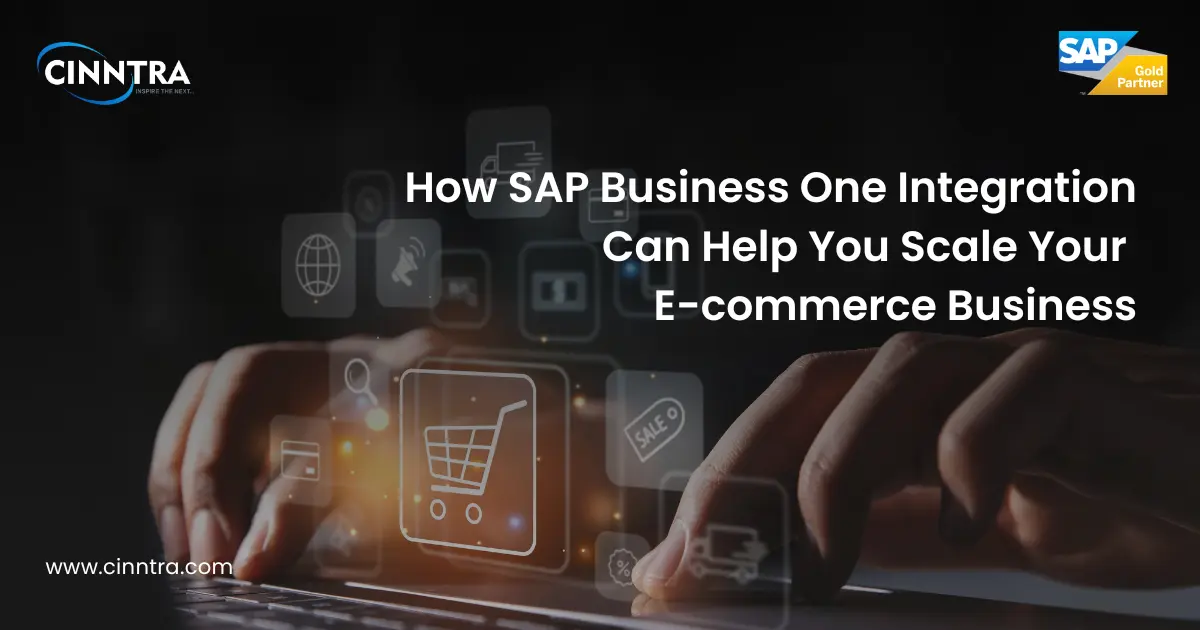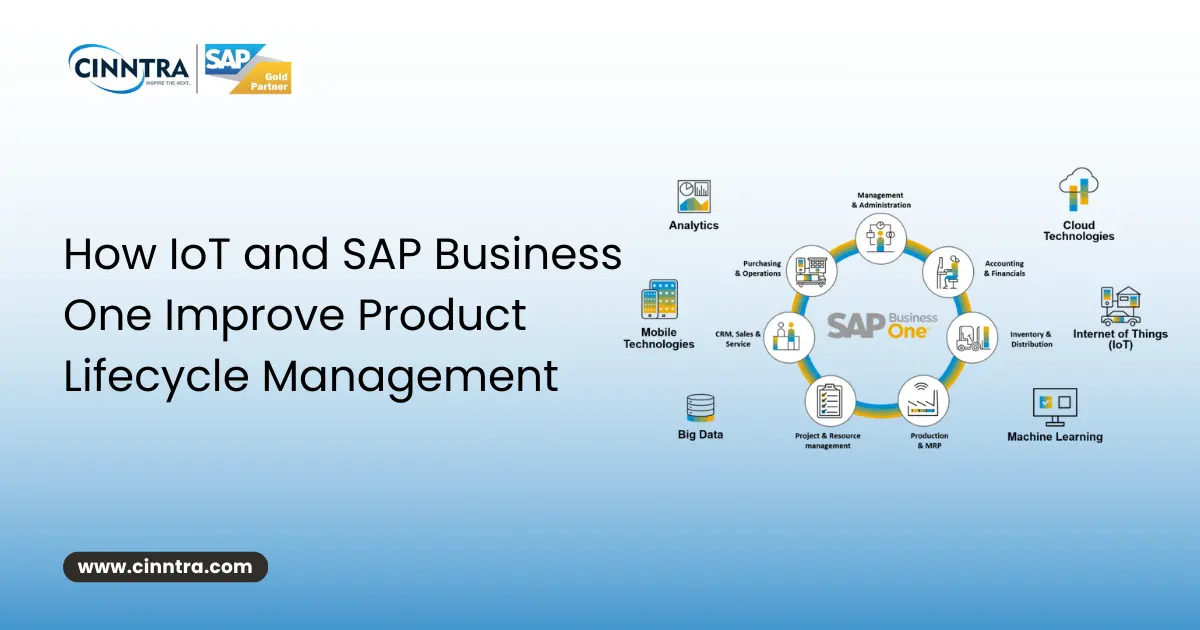SAP Business One for Startups: A Definitive Guide

What’s the first thing that comes to you when you hear “Startups”
You're not the only one if you live in a run-down basement in the heart of the industry. Many people associate startups with a team of only five individuals who share one trait: a high tolerance for chaos, yet even a five-year-old company can be called a startup.
Startups are the heart of new technological advancements. A recent study shows the world has over 150 million startups, with 50 million new ones debuting yearly. On average, 137,000 companies arise every day.
Most start-ups in many industries confront issues, like excessive budget expenditures, steep company costs, and an inefficient payroll system. An ERP solution can be a rescue for startups facing these challenges frequently.
An ERP solution, such as SAP Business One (or SAP B1), is an excellent investment for new businesses. One of the key advantages is that SAP B1 provides real-time business data from various business activities in the start-up organization. This is useful for promoting educated decision-making in the organization.
What is an ERP System All About
Enterprise resource planning, also known as ERP is an integrated platform used to manage different functions of business as a whole. ERP software and its implications in business are critical for companies as they can help enterprises integrate different business operations to run companies in a single system.
An ERP can help businesses to be self-aware and informed about decision-making. As it successfully connects firms as a whole, the implication of an ERP can also eliminate costly evaluations of systems and incompatible technologies.
SAP Business One: ERP for Startups
SAP Business One is a progressive enterprise resource planning platform primarily designed for SMBs.It is a modular ERP that includes integrated modules for accounting, inventory, finance, and other business functions. It facilitates the company's core processes by merging diverse operational duties to deliver insights into company data and enable data-driven decisions with real-time access to information and data.
Illustrative Features of SAP Business One
Businesses today need a refined information forecast to make informed decisions. With SAP B1 on the ground, these features cannot be issues from the scope.
1. Financial Management
Handling finances is a foremost business function that needs errorless operations.SAP Business One provides an entire collection of tools to manage business finances. As a result, it simplifies business procedures, which benefits organizations by improving margins, making lucrative decisions, and reducing the possibility of inaccuracy.
2. Customer and Sales Management
Your customers are the major source of business profitability. The SAP Business One ERP gives users total control over the sales process and the client lifespan, from the initial point of contact to the final interaction. It also includes final sales, post-sales support, and service. As a result, the particular feature allows you to handle advertising initiatives, possibilities for sales, services, customers, mobile sales, reporting, and analysis.
3. Inventory Management
The functionality assists business owners in enhancing cost control and buying behaviors by allowing them to manage the entire process from order to payment. It contains receipts, invoices, payments, and refunds. This platform also includes capabilities such as Accounts Payable, master data management, a warehouse, improved procurement processes, and accounting integration for real-time data.
4. Reporting and Analytics
Analytics and reporting are a further essential aspect that assists businesses in making great business decisions. Furthermore, the dashboard captures critical real-time data, allowing businesses to make informed decisions. This not only helps in taking intuitive operations at the stage but also holds sophisticated decisions with better visibility.
5. Business Intelligence
Business intelligence enables companies to customize and generate accurate reports on time. The reports are accurate since they are based on data collected from the firm. As a result, users may use analytics to build reports that include data visualization, pre-defined metrics, and other user-friendly tools.
BI technologies assist executives, managers, and employees in identifying insights relevant to their roles and areas of responsibility, and then using them to make fact-based decisions rather than speculation.
How SAP B1 Works?
SAP Business One is an inexpensive yet efficient solution for small and medium-sized businesses, as well as start-ups with 1-5 users. It provides an intuitive interface that enables multiple divisions to pool data, saving time and enhancing collaboration. From financials and administration to stock and consumer relationship control (CRM), all the key corporation sectors are incorporated to offer entire visibility into your operations. By storing statistics in a unified system, you could access critical real-time records and make short, informed choices.
Benefits of SAP Business One for Start-Ups
Implementing SAP B1 in startups can gain insightful results. The benefits that can be realized with time are as follows.
-
Refined Business Efficiency:
Businesses now constantly search for methods to minimize costs and enhance revenue. The SAP ERP system can save administrative and operational expenses by collecting real-time data, eliminating redundancies, and simplifying financial information. You can use the data to avoid problems, such as low inventory or delays in shipping.
-
Informed Decision Making:
Collaboration among all departments is essential for any business's sustainability. If one falls out of sync, the consequences can be disastrous. You can promote collaboration by connecting more data and software.
SAP Business One allows you to deliver data to any department at any time, ensuring that all employees have equal access to information if desired. This enables employees to interact with one another with greater information and be more proactive.
Improved Data Management:
SAP b1 gathers data from all integrated programs, processes it, and presents it in one place. This data is easily accessible to different departments, keeping everyone up to date.
If you intend to use a CRM application in the future, connecting with the SAP system is simple, and all of your client's information will be securely saved in a single area.
-
Scalability:
SAP B1 can be used whether you are just starting a business or growing towards a billion-dollar revenue objective. The ERP system can facilitate growth in all directions. SAP is meant to look at company requirements and offer you data to assist you plan forward. One can also scale the system to meet your specific requirements at any time. Begin with a simple deployment, and as your business grows, SAP Business One expands to manage more people, inventory, equipment, and data.
-
Customizable:
ERP systems are intended to be adaptable enough that any employee can utilize them to make their job simpler. Because the application is adaptable, there are functions or modules available with SAP B1 startups that include characteristics unique to each department in your company. For instance, the modules for sales and distribution are distinct from those for inventory control and finance.
Startups are Growing with SAP Business One
SAP Business One for startups holds a bright future. With the invaluable insights and modules offered by the platform, businesses today can successfully transform their business operations on a single system by holding better decision analytics taking them to the roadmap of success and profitability.



0 Comments